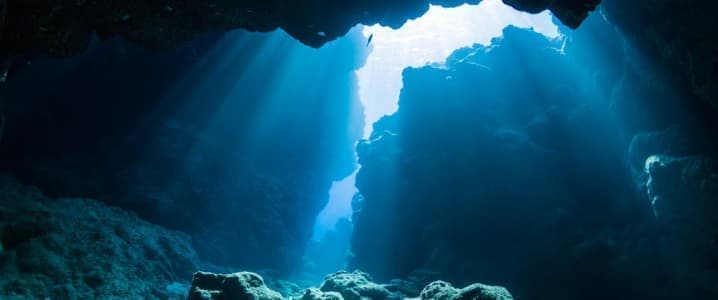Norway recently approved deep-sea mining activities for the recovery of critical minerals, becoming one of the first countries to do so. To date, countries worldwide have been reluctant to carry out deep-sea mining activities due to the risks involved, that are thought to be greater than onshore mining. But Norway views the move as key to accessing minerals critical to achieving a global green transition. So, could this encourage other countries to do the same?
This month, Norway’s parliament voted to open its waters for commercial-scale deep-sea mining. Those who support the bill believe the extraction of metals and minerals from the ocean’s seabed will be necessary to support the growing demand for these materials under a global green transition. Norway hopes the move will support a shift away from fossil fuels in favour of renewable alternatives. Advocates also suggest that the practice could be less harmful to the environment than land-based mining.
Potato-sized nodules of critical minerals, including cobalt, nickel, copper, and manganese can be found at the bottom of the sea floor. These minerals have previously only been accessed from large-scale mining projects on land, which are also destructive to the environment. Many countries are investing in the expansion of land mining activities in response to the growing global demand for these minerals. As countries worldwide shift away from a reliance on fossil fuels and invest in renewable energy projects, clean technologies and electric vehicles, the demand for critical minerals is expected to rise sharply in the coming decades. Gerard Barron, CEO of Vancouver-based The Metals Co., explained, "What are the alternatives if we don't go to the ocean for these metals? The only alternative is more land mining and more pushing into sensitive ecosystems, including rainforests.”
At present, several forecasts say that there are not enough mining activities at present to meet this demand. This is driving leaders worldwide to investigate alternative ways to meet this growing demand. By 2040, the world will require twice the amount of cobalt, nickel, copper, and manganese as it uses today to meet global energy transition targets, according to the International Energy Agency.
Norway’s plan allows companies to apply for mining licenses for critical minerals in the country’s waters, near the Svalbard archipelago, which covers an area of around 280,000 square kilometres. The country would not start drilling immediately, rather it will accept proposals from firms applying for licenses to be assessed for approval.
However, critics suggest that deep-sea mining is extremely destructive and much of the potential impact on the environment is still unknown. Scientists do not yet know what impact the removal of the large mineral nodules from the seabed could have on the ecosystems under the sea. However, there are strong arguments both for and against deep-sea mining, particularly as it is expected to take a long time until the potential impact of the practice is fully understood. Jessica Battle, the leader of the World Wildlife Fund’s No Deep Seabed Mining Initiative, explained, “Scientists are projecting it will take decades before we know enough about the deep sea to make those informed decisions, to not jeopardize and destroy something before we actually really know what it will do for us.”
Both the U.K. and the European Commission have enforced temporary bans on the practice until there is a greater understanding of the impact of deep-sea mining on the environment. Several companies, such as BMW and Google, have also called for bans. A letter from EU lawmakers urging Norway to reconsider the move stated, “The sheer importance of the ocean to our planet and people, and the risk of large-scale and permanent loss of biodiversity, ecosystems, and ecosystem functions, necessitates a pause of all efforts to begin mining of the deep sea.” The Norway Environment Agency and its many citizens have also condemned the plan due to environmental concerns.
Meanwhile, the International Seabed Authority (ISA) is working to establish regulations for deep-sea mining, as companies and governments worldwide look for alternative ways to access critical minerals. There are several different approaches to deep-sea mining, which are being assessed for their potential impact on the environment by the Authority. The ISA missed a July 2023 deadline for setting standards for the sector, making it easier for Norway and other powers to move forward on deep-sea mining plans.
Norway is not the only country looking to commence deep-sea mining operations for critical minerals, with Japan and the Cook Islands making similar advances on deep-sea mining plans in recent years. It is not surprising that countries are looking to deep-sea mining to meet the growing demand for critical minerals. A U.S. Geological Survey suggests that The Clarion-Clipperton Zone (CZZ) - an environmental management area of the Pacific Ocean, administered by the ISA, which covers around 1.3 percent of the ocean floor – contains more nickel, cobalt, and manganese than all on-land deposits. This has led many to question whether deep-sea mining may be less environmentally damaging than land mining, as producers would only need to mine a small area to see big results. However, scientists and climate activists are wary of entering into new, invasive energy activities without fully understanding the potential impact on the environment, making Norway’s move extremely controversial.
By Felicity Bradstock for Oilprice.com
More Top Reads From Oilprice.com:
- Beijing Navigates Shifting Sands in Middle East Politics
- Protecting Coasts and Powering Homes: The Tidal Range Revolution
- Space-Based Solar Farms Could Power the Planet from Orbit


















